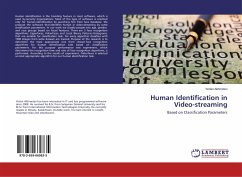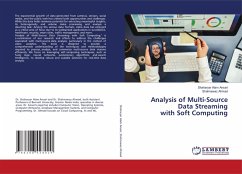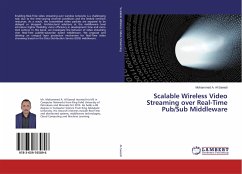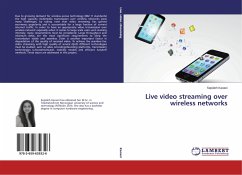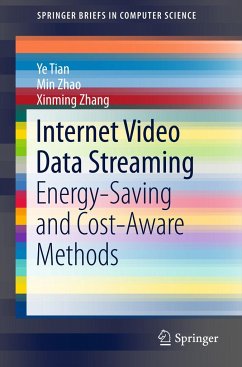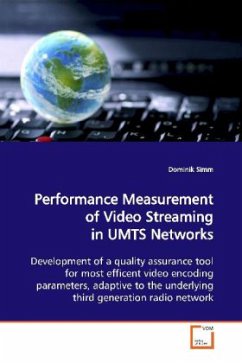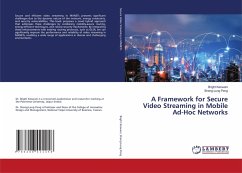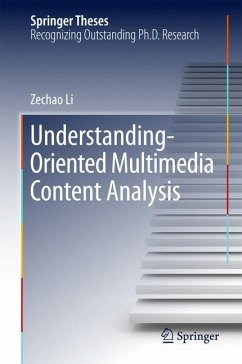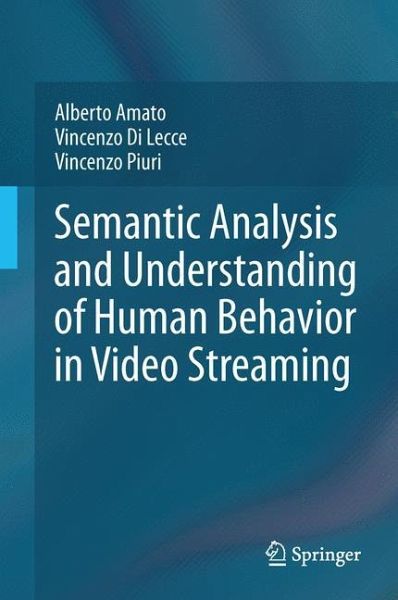
Semantic Analysis and Understanding of Human Behavior in Video Streaming
Versandkostenfrei!
Versandfertig in 6-10 Tagen
38,99 €
inkl. MwSt.
Weitere Ausgaben:

PAYBACK Punkte
19 °P sammeln!
Semantic Analysis and Understanding of Human Behaviour in Video Streaming investigates the semantic analysis of the human behaviour captured by video streaming, and introduces both theoretical and technological points of view. Video analysis based on the semantic content is in fact still an open issue for the computer vision research community, especially when real-time analysis of complex scenes is concerned.This book explores an innovative, original approach to human behaviour analysis and understanding by using the syntactical symbolic analysis of images and video streaming described by mea...
Semantic Analysis and Understanding of Human Behaviour in Video Streaming investigates the semantic analysis of the human behaviour captured by video streaming, and introduces both theoretical and technological points of view. Video analysis based on the semantic content is in fact still an open issue for the computer vision research community, especially when real-time analysis of complex scenes is concerned.
This book explores an innovative, original approach to human behaviour analysis and understanding by using the syntactical symbolic analysis of images and video streaming described by means of strings of symbols. A symbol is associated to each area of the analyzed scene. When a moving object enters an area, the corresponding symbol is appended to the string describing the motion. This approach allows for characterizing the motion of a moving object with a word composed by symbols. By studying and classifying these words we can categorize and understand the various behaviours. The main advantage of this approach lies in the simplicity of the scene and motion descriptions so that the behaviour analysis will have limited computational complexity due to the intrinsic nature both of the representations and the related operations used to manipulate them. Besides, the structure of the representations is well suited for possible parallel processing, thus allowing for speeding up the analysis when appropriate hardware architectures are used. A new methodology for design systems for hierarchical high semantic level analysis of video streaming in narrow domains is also proposed. Guidelines to design your own system are provided in this book.
Designed for practitioners, computer scientists and engineers working within the fields of human computer interaction, surveillance, image processing and computer vision, this book can also be used as secondary text book for advanced-level students in computer science andengineering.
This book explores an innovative, original approach to human behaviour analysis and understanding by using the syntactical symbolic analysis of images and video streaming described by means of strings of symbols. A symbol is associated to each area of the analyzed scene. When a moving object enters an area, the corresponding symbol is appended to the string describing the motion. This approach allows for characterizing the motion of a moving object with a word composed by symbols. By studying and classifying these words we can categorize and understand the various behaviours. The main advantage of this approach lies in the simplicity of the scene and motion descriptions so that the behaviour analysis will have limited computational complexity due to the intrinsic nature both of the representations and the related operations used to manipulate them. Besides, the structure of the representations is well suited for possible parallel processing, thus allowing for speeding up the analysis when appropriate hardware architectures are used. A new methodology for design systems for hierarchical high semantic level analysis of video streaming in narrow domains is also proposed. Guidelines to design your own system are provided in this book.
Designed for practitioners, computer scientists and engineers working within the fields of human computer interaction, surveillance, image processing and computer vision, this book can also be used as secondary text book for advanced-level students in computer science andengineering.






